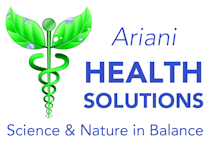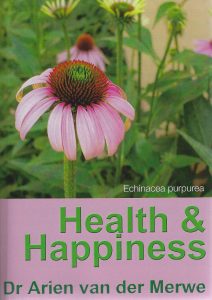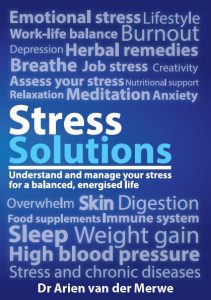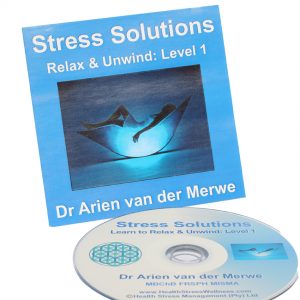Stress Less Toolkit
 STRESS is all around us (e.g. life-, work-, financial-, emotional- & relationship stress). It affects all aspects of our lives and wellness (physical-, emotional-, intellectual-, spiritual-, environmental-, financial-, occupational- and social wellness). High stress also affects our weight, sleep, quality of life, energy and basically everything. The good news: you can learn to manage it, as stress will never disappear.
STRESS is all around us (e.g. life-, work-, financial-, emotional- & relationship stress). It affects all aspects of our lives and wellness (physical-, emotional-, intellectual-, spiritual-, environmental-, financial-, occupational- and social wellness). High stress also affects our weight, sleep, quality of life, energy and basically everything. The good news: you can learn to manage it, as stress will never disappear.
If left untreated, it may cause mild health challenges (lack of sleep, low concentration and memory, low energy levels, a suppressed immune system etc) or even more extreme chronic lifestyle diseases (incl. depression, heart disease, diabetes, overweight/obesity, arthritis, and all other inflammatory diseases etc). Stress is the number 1 cause for ALL chronic diseases. It is, therefore, crucial to become aware of your stress and learn how to manage it effectively, to reduce your health risks.
I share my holistic (mind, body & soul) approach to managing your stress, teaching you the effect that stress has on our mind-body-soul unit and how you can manage your stress to improve wellness.
It’s time to take the driving seat in your life and learn more about your health and how to live a stress-less and happier life!
Top 10 STRESS-LESS Tips
- Understanding Stress
Stress is an ancient survival tool to ensure survival of the species. It is deeply ingrained in all of us, therefore we have to dig deep to learn how to manage it.
There are two types of stress
- Positive stress (eustress) which is the good stress we need to flourish and grow
- Negative stress (distress) which is the bad stress that wil spiral out of control if we don’t learn ways to manage it
A well balanced and stress-less life depends on three sides of a triangle. Each side is equally important and therefore equal in length.
When your (1) physical -, (2) mental-emotional or psychospiritual – and (3) social wellbeing is balanced, it will promote a state of relaxation, calm and centredness (even during turbulent times).
Stress can come in any shape and size and affect all of us differently. Our stress triggers/stressors (factors that cause us stress) also differ depending on our personality, state of mind, situation and/or circumstance. For example one person can get stressed if someone talks too loudly, while someone else can get stressed by admin.
Chronic (or long term) stress releases hormones and chemicals that have a direct effect on the functioning (also known as physiology) of all our cells and may lead to renegade inflammation. The detrimental effects of stress generally express in our genetic inherited weaknesses and therefore it presents in different organs and systems, differently in each of us – some may experience gut issues while others experience eczema, tiredness, fatigue or become sick often (i.e. affecting the immune system). This is known as our stress symptoms.
We are all different when it comes to dealing with our stressors/stress triggers; therefore we need unique stress solutions.
‘Today I will be conscious of my thoughts, my words, and my emotions. Today I will live in the moment and invite love to be present.’
– Julie Parker
Some examples of stress triggers / stressors
- Getting easily upset if things aren’t going my way
- Unreasonable expectations of myself and others
- Impatient when I don’t get things right quickly and at first try
- Get angry easily about others’ behaviour
- Feeling rushed and hurried often
- Feeling overwhelmed
Please get help if these stress triggers feel too overwhelming!
Ask yourself: hat are my stress symptoms (what physical or mental symptoms do I already manifest as indication that I’m physically overwhelmed)?
Some examples of stress symptoms
- Inflammation that has become chronic and/or painful
- Cardiovascular disease such as high blood pressure and high cholesterol
- Metabolic syndrome (abdominal obesity, high triglycerides and low good HDL cholesterol, high blood pressure, high fasting blood sugar, insulin resistance)
- Depression – mild (dysthymia), moderate or severe
- Overweight / obesity
- Time Out
Time out in your day is essential for your health and happiness. Time out helps you to regenerate, rejuvenate and recover from your daily stresses and strains. Our species did not evolve to be stimulated 24/7, even if today’s society requires us to work abnormally long hours. Take at least 5-10 minutes entirely to yourself, daily, to regroup and let go of your stressors. It is also essential to replace destructive thoughts that causes stress, especially of work and to-do lists, with constructive and relaxed ones during this time. Take time out to sit or lie down and breathe.
- Relax, Recover & Reprogram
Research shows that relaxation is key to a well-balanced life. Relaxation is a great tool to help you master and manage your stress. One of the easiest ways to start a relaxation practice is through breathing. Stress triggers shallow breathing, which means your cells are not receiving enough oxygen to function optimally. Common signs of this include brain fog, forgetfulness, fatigue and overwhelm.
Breathing activates our parasympathetic nervous system (aka our rest and digest system) and forces your body to relax. It might seem simple, but we are not used to deep breathing at all. Dr Arien developed her ‘Stress Solutions Relax and Unwind Level 1’ audios to help you do just that (anytime and anywhere).
When you feel stressed or overwhelmed, immediately bring your attention to your breathing. Stress-triggered shallow breathing goes unnoticed, but when we start becoming aware of it, we can take action and breathe deeply. This will ensure that all our cells receive enough oxygen not just to survive, but to thrive.
Daily relaxation or meditation can improve the functioning (or physiology) of your entire body as well as help lower inflammation. Stress and inflammation are the main cause of all lifestyle diseases. Take regular deep breathing breaks during your day. You can even take a long soak in a hot bath with anti-inflammatory essential oils.
What and how you think has a profound effect on the messages you send to your cells. Your body only does what you tell it to, therefore be mindful of the conversations in your mind. Your mind can be your greatest ally or worst enemy, the good news: you decide!
Work-life balance is crucial to long term health. Find a way to let go after a busy day and have a clear boundary of when work stops and home life begins.
- Emotions and Thoughts
Thoughts have a real impact on physical health. Molecules of the mind (released due to thoughts and emotions) courses through the blood stream and enters the cells. It then affects the cell’s function directly. You become what you think. Your cells ‘feel’ like you do.
Resentment, bitterness, fearful imagination and worry have a negative impact on the immune system, heart and whole body. Visualising a happy scene has a positive effect on your whole body.
The two main emotions are: LOVE and FEAR. Emotional Freedom Technique (EFT) and Emotional Positioning System (EPS) are emotional GPS’ that can help you become aware of your current emotion and then we teach you how to move up this system to get closer to love.
Your cells do not know the difference between perceived vs. real stressors or threats, therefore whether you think about negative things and whether they are actually occurring does not matter to your cells. It is crucial to become aware of your thoughts and how they might be impacting your body. Suppressing emotions will cause higher stress in your body. Learning to manage your emotions is a crucial step to a stress-less life.
- Self-Knowledge and Self-Awareness
We cannot heal or work on anything if we are not first aware of it.
Self-knowledge and self-awareness are two of the most important factors for change in our lives. Awareness of our stressors and stress symptoms is the crucial first step to managing stress. We need to become aware of what is holding us back, then educate ourselves to make informed decisions and then take action to bring about lasting change. The next essential factor is our:
Human beings can change their lives by changing their perceptions, attitudes, thoughts and limiting beliefs (aka disempowering beliefs/ beliefs that are holding you back). Making the decision to take control of your life and managing your stress effectively is step 1 when it comes to mindset. Incorporate these tools into your daily life and remember that practice makes perfect. You need to use these tools regularly to form a new habit or else nothing will change.
- Soul Connection
Soul connection is essential for a stress-less life. Spiritual practices (no matter your religion or spiritual path) help us align body, mind and soul. Connect to source with your choice of spiritual ritual, breathing, through prayer (aka gratitude and appreciation) or by being in nature (e.g. hiking, watching a beautiful sunset, grounding – barefoot on the ground/grass). No matter what it is, as long as you feel calm, connected and relaxed.
- Listen and Learn
Start listening or becoming aware of your body and mind. For e.g. don’t push your body physically when in pain or discomfort; start noticing your thought patterns and emotions. Our bodies are constantly communicating with us, yet we ignore it, because of our fast paced lifestyles. Begin to listen to your body, so that you can support and improve it. For example when you experience a headache it is mostly due to dehydration. When you are aware of it, you can start drinking enough water daily (250ml per 1kg body weight – e.g. a person weighing 80kg should drink 2L) and prevent the headache all together.
Learn new things, get creative and challenge yourself. Finding a hobby you enjoy is a great way to learn new skills. These hobbies are often what brings joy to our daily lives, which reduces stress. Having fun while learning is a fantastic way to destress. When we experience pleasure and fun we releases endorphins and our brains are engaged in the present moment. This stops us from thinking of future worries and helps us feel relaxed and at ease.
- Enhancers for a Healthy Lifestyle
Moderate your physical responses to stress with your nutrition, fun & laughter, workplace enhancement, ergonomics and muscle relaxation exercises. Some ways to enhance your physical wellness include:
Stress-Less Food
Food to Improve Mood:
Low- and high blood sugar can induce a stress reaction in your body. Ensure that you eat healthy, wholesome, nutrient dense superfoods to help you manage stress. Some include:
- Healthy fats from plants (avo, olives, oils, nuts, seeds)
- Fruits – berries, citrus (high in vit C & E: decrease anxiety)
- Fatty Fish: salmon/trout, sardines, pilchards, mackerel
- Complex carbs (to improve serotonin), such as ccereal grains, grasses – wheatgrass, brown rice, oats
- High fibre foods and probiotics to improve gut health (to improve anxiety, depression & mood – serotonin)
- Herbal teas to promote calmness (chamomile), raw cacao (beans, nibs, powder, butter), warm milk – to assist with stress and sleep, herbs (e.g. garlic)
- Rainbow eating – eat 5-9 portions of different coloured fruits and veggies daily.
Food for Thought
It’s not only about what you eat, but more importantly HOW you eat.
Mindful Eating
- Use all of your senses when you eat: seeing, hearing, tasting, smelling and feeling – touch and emotions.
- Breathe before you start eating to activate your rest and digest nervous system to decrease gut related issues like bloating, stomach cramps. Take 5 to 10 deep breaths before you start eating.
Herbal Help
Herbs are plants with medicinal, culinary and aromatic properties. Those that comply with all 3 are mostly safe to use every day. Those with only medicinal properties like St John’s Wort for mild depression, should be used under the supervision of a health practitioner with experience in herbal medicine.
Having said that, there are so many herbs that can be safely used every day to support your whole body and mind to cope better with stress.
These would include well-known herbs and spices to use in your salads, stews and basically all your food, such as garlic, ginger, turmeric, cinnamon, thyme, rosemary, basil, sage and many more.
Ginkgo biloba is an exception even though it is mainly medicinal, it can be used safely as a general herb to use for memory, concentration and mild depression.
Echinacea can be used to support immune system health and assist in treating mild infections,
Aromatherapy Oils:
- lavender, chamomile -peace and calm
- geranium & rose – emotional balance
- peppermint & lemon – lift, more energy.
- Inhaling essential oil healing plant – direct effect on the limbic, emotional centre inside the brain.
- Choose oils to balance your mood.
Mindful Movement
‘Mindfulness is becoming in tune with your internal world and starting to listen to your body and its needs again.’
Stress-Less Movement Benefits
Moderate exercise in almost any form can act as stress reliever (from tennis to yoga). The wellness definition of movement is that exercise must be of an intensity for you to meet the needs of your lifestyle with ease: to release stress chemicals, increase energy and protect against harmful effects of stress. Exercise is also essential for a healthy spine, core, pelvis, chest and head.
Types of Stress-less Exercises : practical simple ways ways – park further away, carry groceries, take the stairs rather than an escalator. Move around regularly throughout the day – stretch at your desk, dance, walk around, stand up and work. Dancing, brisk walks, hikes, jogging, swimming and yoga are examples to try out.
.
- Sleep
Healthy sleep helps our bodies to repair, recover and heal. Our circadian rhythm (CR) is our natural and internal process that regulates our sleep–wake cycle and repeats roughly every 24 hours. Our CR is negatively affected by stress, late nights, lack of routine. This is why so many people that are overwhelmed and stressed also struggle to sleep
The CR is mainly controlled by two hormones, namely cortisol and melatonin. Cortisol increases in the morning to allow us to wake up and decreases throughout the day. Melatonin is our recovery hormone that increases as we sleep (to promote healing, building and recovering) and then decreases during the day. Long term stress causes high cortisol levels and lowered melatonin levels that may disrupt recovery and healing as well as cause many health related issues.
Light is the largest factor controlling the CR, but meal times and body temperature can also affect it. It is important to avoid distractions and screens before sleeping to encourage optimal levels of melatonin. The blue light emitted by screens decreases the production of melatonin. Also avoid food, alcohol, stimulants and caffeine before going to bed.
- Self-Love and Self-Care using Relaxation and Meditation Practice
Improving your health and making time for it (by incorporating these tools into your life) is the greatest act of self-love and self-care. Health and lifestyle changes, like effective stress management, takes a lot of practice, patience and perseverance (the 3 P’s). The 3 P’s can be used to react your way through life – learn to pause, listen and be still. Then deliberately choose to see every stressful situation differently, responding in new ways and forming new neural networks.
A great way to start is to have a gratitude attitude:
- Set your intentions for the day when waking up.
- Commit to doing one thing for yourself each day and pull through for yourself like you would for someone else (eating something healthy or making a delicious cup of tea).
- Gratitude list – list 5 things that you are grateful for daily (no matter how big or small).









